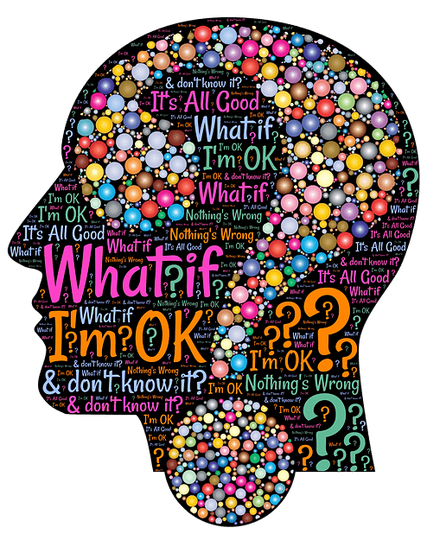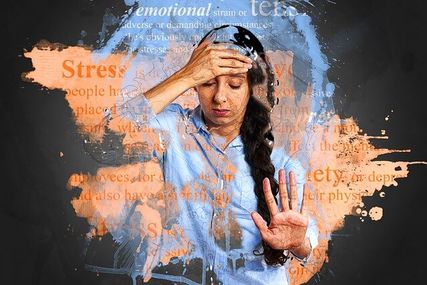
'Could I be a paedophile and not know it?' 'I keep having thoughts about harming others; does this mean I am dangerous?' 'Why do I keep having awful intrusive thoughts?' In last week's Southern Star, my column explored the problem of OCD-related intrusive thoughts. The column is reproduced below.
If someone told you they were terrified they were a paedophile, that they spent hours every day fighting terrifying, intrusive thoughts involving sexual molestation of children – what would you think?
Consider Mr B, a 35-year-old married man who presented to a psychiatry clinic seeking help for distressing, intrusive thoughts and images towards his two-year-old son. A case study in the Harvard Review of Psychiatry recounts how for years, Mr B had experienced intrusive thoughts, but they intensified after the birth of his son. The thoughts and images would begin shortly after waking every morning, accompanied by anxiety and shame.
Mr B wondered: why was he having these thoughts? Did this mean he was a paedophile? He found the images nauseating, but the worry he might be a paedophile was ‘unbearable’.
Consequently, he felt compelled to imagine thoughts of violent sexual abuse until he was sure he was not aroused by the imagery, scanning his body to detect for any bodily sensations. Doing so made him sick – the thoughts were nauseating, not arousing – but he could never get the 100% proof he wanted, worrying he might be a paedophile and ‘just not know it’.
At the end of his tether, Mr B made a suicide plan, vowing to kill himself when he had saved enough money to provide for his children after his death. The suicide plan alarmed his wife, who insisted he get help. At the psychiatry clinic, she outlined how he was a kind man who had been tortured by his thoughts for years.
The professionals knew Mr B was not a paedophile; he had obsessive compulsive disorder (OCD).
Mr B was sceptical – like many, he thought OCD was about compulsive checking and cleaning. However, many people with OCD don’t engage in any obvious, visible compulsions, but they are plagued by intrusive thoughts – a form of invisible OCD that is sometimes dubbed Pure O. Even amongst medical professionals, this type of OCD is often misdiagnosed. Many counsellors are woefully misinformed on the subject, often pursuing outdated therapeutic methods that only worsen the person’s suffering.
INTRUSIVE THOUGHTS ARE COMMON
Ignorance, fear and stigma mean sufferers tend to be secretive. Feeling terribly alone, many never seek help until they hit rock-bottom. In reality, it’s very common for people with OCD to experience intrusive thoughts. In fact, surveys confirm the vast majority of people have experienced intrusive thoughts, but they rightly pay no heed to them, recognising them as junk thoughts that don’t merit consideration.
The OCD brain is different, however, and frets over the content of the thoughts. Dr Lee Baer’s The Imp of the Mind: Exploring the Silent Epidemic of Obsessive Bad Thoughts, recounts various cases – the man who thought he had killed people while driving, the woman who worried she would throw her grandchildren off a bridge, the woman tormented by thoughts of lesbian sex with her sister, the man who feared he would stab children with a knife, the nun who thought she was damned for having impure sexual thoughts, the new mother who thought she’d poison her baby.
COMMON OBSESSIONS

Sexual obsessions – What if I’m gay and don’t know it? What if I’m straight and don’t know it? What if I’m a paedophile? – are common and can be especially distressing.
Others might obsess about doing harm to others (harm OCD) or about their relationship (relationship OCD, or ROCD) or their religion – the varieties are endless.
The actual content of the thought doesn’t matter – often, one fear will fade away only to be replaced by a different one.
The term ‘pure O’ is an imperfect one, as it implies obsessiveness but no compulsions. In reality, there are always subtle compulsions, whether they be checking Google, avoiding situations that trigger intrusive thoughts, looking for reassurance, praying, counting, body scanning or various other safety behaviours.
I’ll revisit this subject in my next column, where I’ll discuss what sufferers should and shouldn’t be doing. Suffice to say, the problem is not your thoughts but the way you’re reacting to them. You’re not a bad person if you’re in the grip of intrusive thoughts. They are an aspect of your anxiety disorder, not of your character.